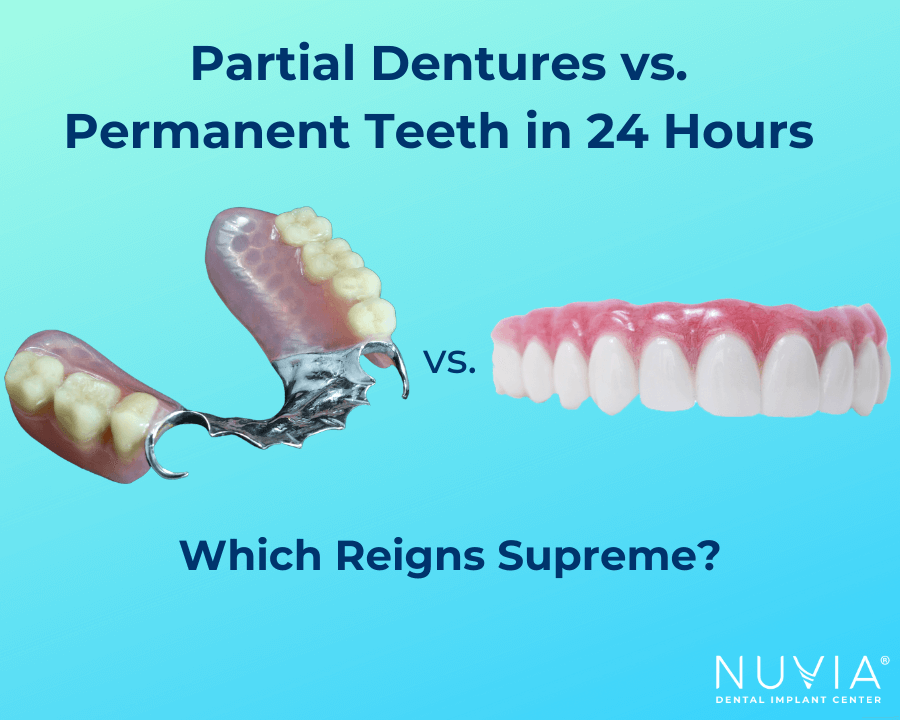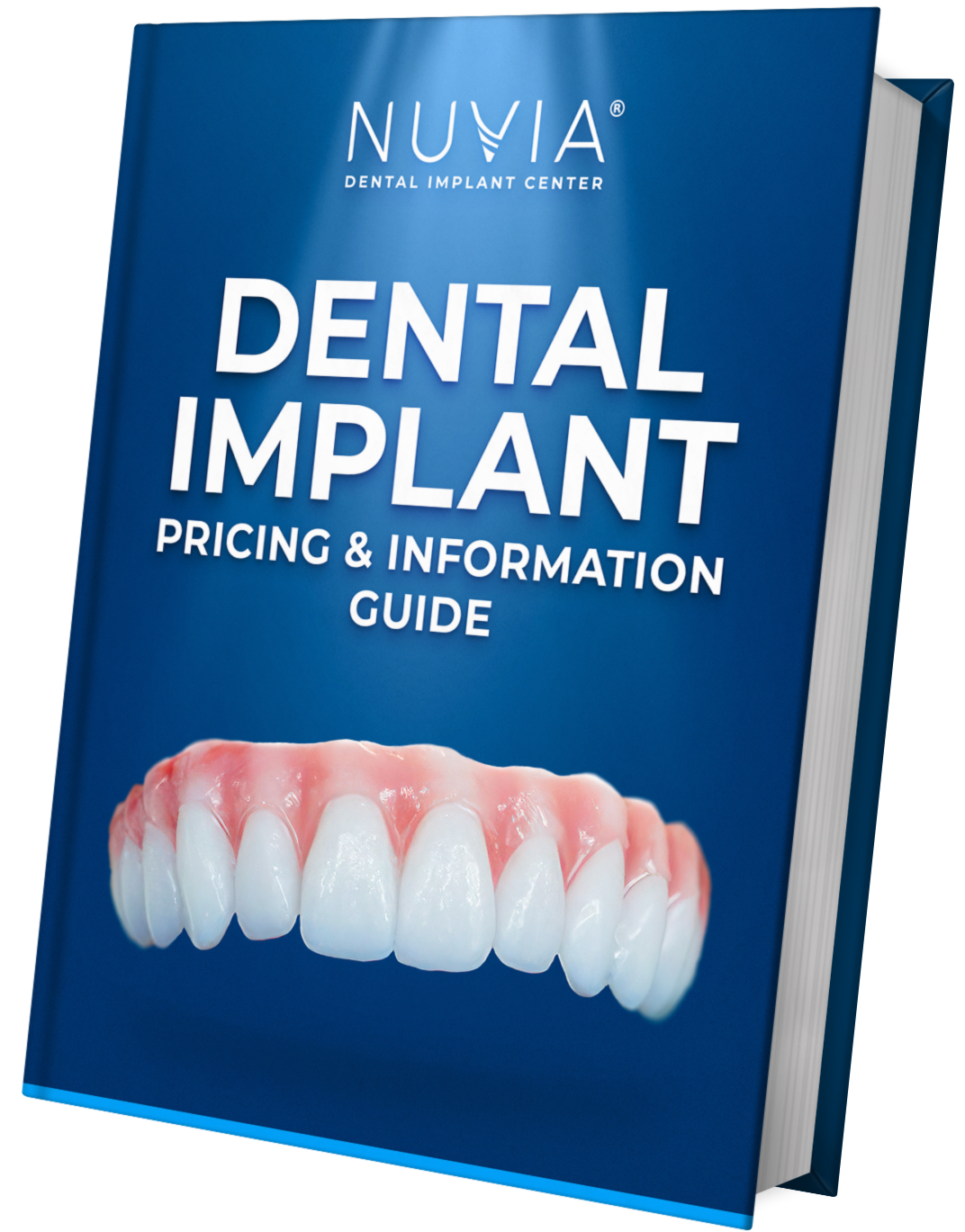
How Dental Implants Work

If you are looking into dental implants, you may have questions. We want to help you understand the process as best as you can. Here are answers to a few of the questions you might have.
What are dental implants made of?
Dental implants are made of medical grade titanium. It is the same material that makes up shoulder, hip, and knee replacement parts. Through osseointegration, the bone grows around the implants and bonds with the bone. After this bonding takes place, the implant functions as a natural tooth with a natural root.

How long does the entire process take?
At Nuvia it takes 24 hours to receive your full mouth dental implants, and the entire process can be completed in just a few days. For our traveling patients, we recommend planning for a week. For example, this could include the initial consultation and smile design on Monday (we design each smile custom for every patient), the implant surgery on Tuesday, installing the permanent teeth on Wednesday (they are milled Tuesday night to fit the placed implants with accuracy down to the nanometer), and a checkup on Friday. That's it. Immediately after the permanent teeth are installed Wednesday morning, you can eat soft foods such as pizza, pasta, hamburgers, anything that can be cut with a plastic spoon.

How painful is it to receive dental implants?
The pain depends on the patient. Most patients generally feel more of a discomfort instead of pain. Your mouth is numb during the process, causing less pain. Implanting the metal posts into your jawbone is done under full anesthesia, but you could notice some swelling or discomfort in the days after the surgery. Tissue swelling and discomfort can last up to ten days. The majority of our patients can manage any discomfort with over the counter Tylenol and Ibuprofen, however some stronger medications can be provided if necessary. Some patients can even feel less pain from the implant surgery than they did from their damaged or infected teeth.
How much do implants cost?
The cost of implants varies greatly depending on the patient. Some only need a few teeth implanted, while others need a full mouth of implants. Even though we implement incredible technology, and can provide permanent teeth within 24 hours after the surgery without the need for temporary dentures. This gets rid of a large part of the "traditional" teeth-in-a-day method, which can help lessen the cost. Even with our incredible technology and procedures we are still competitively priced. Please fill out the evaluation form here to request a voucher for a free consultation, and we will tell you what dental implants will cost you specifically.
How do I pay for implants?
First, be sure to check with your insurance. Dental implants are usually considered cosmetic and not covered but check anyway. Some plans could offer some coverage. Other options to cover the cost include financing through the dental office, personal loans, paying with credit cards, or using you HSA or FSA. Check out our “Dental Implant Cost and Information Guide” for more information.
How do I take care of my implants?
Just as your natural teeth need to be taken care of, dental implants are the same. Proper cleaning on the implants include:
- Brushing at least twice daily
- Regular flossing
- No smoking – smoking with dental implants can cause complications and implant failure
- Protecting your teeth from trauma and injury
- Avoid using your teeth to open bottles, packages, or to crack nuts
How long will your implants last?
Full mouth dental implants look and act like natural teeth, but they are not susceptible to dental decay. If taken care of properly as previously described, dental implants can last more than 25 years.
Are dental implants safe?
As with any surgery, there can be risks. The success rate of dental implants typically ranges from 90-95%. The common risks include infection, nerve damage, and sinus problems. Other teeth or blood vessels can also be damaged during the process. When these complications do arise, they are generally minor and easy to treat.

How can you start the process of dental implants? Contact Nuvia Dental Centers for a free consultation to see how implants could improve your smile.
*Sources:
Raikar, S., Talukdar, P., Kumari, S., Panda, S. K., Oommen, V. M., & Prasad, A. (2017). Factors Affecting the Survival Rate of Dental Implants: A Retrospective Study. Journal of International Society of Preventive & Community Dentistry, 7(6), 351–355. https://doi.org/10.4103/jispcd.JISPCD_380_17
More Articles Like This one


Partial Dentures vs. Permanent Teeth in 24 Hours - Pros and Cons







